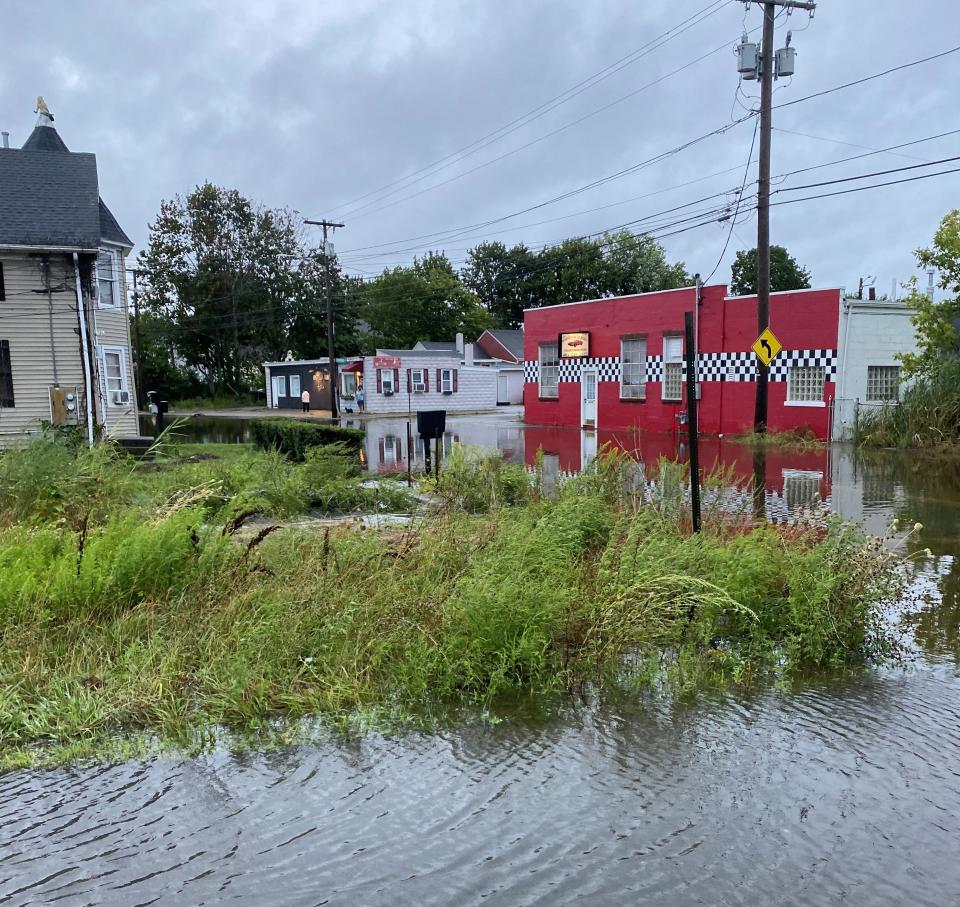US Supreme Court ruling clears RI to pursue climate-change case against oil, gas companies
PROVIDENCE – Rhode Island’s landmark climate-change lawsuit was bolstered Monday after the U.S. Supreme Court refused a petition from some of the largest fossil-fuel companies in the world to consider whether the case and others like it belong in federal court.
The Rhode Island case and others brought in California, Colorado, Maryland and Hawaii are set to proceed in state courts, which are widely perceived as being friendlier to the claims of municipalities, counties and states seeking damages from ExxonMobil, Chevron and other oil and gas giants to pay for the impacts of climate change.
Rhode Island Attorney General Peter F. Neronha applauded the Supreme Court’s decision on Monday to deny the appeal in Rhode Island v. Shell Oil Co.
“Today’s decision marks an important milestone in the proceedings as the court has again rejected an attempt by major fossil-fuel company defendants to move the case to federal court and instead kept the case in state court, where it rightly belongs,” Neronha said in a statement. “After decades of climate-change deception by the fossil-fuel defendants, and now nearly half a decade of delay tactics in our lawsuit to hold them accountable for it, our residents, workers, businesses and taxpayers are ready for their day in court.”

Theodore J. Boutros Jr., a lawyer for Chevron, called the lawsuits "wasteful" and said he expected them to be dismissed.
"Climate change is an issue of national and global magnitude that requires a coordinated federal policy response, not a disjointed patchwork of lawsuits in state courts across multiple states," he said in a statement.
Neronha’s predecessor, Peter F. Kilmartin, filed the case in 2018, making Rhode Island the first state in the nation to sue fossil-fuel companies to force them to take responsibility for their part in causing climate change.
The case against 21 companies was brought under the area of law that allows Rhode Island to prevent the pollution of public property. The state has argued it has every right to protect its residents’ welfare by trying to force the oil and gas companies to bear the costs of climate-change impacts that include sea-level rise and more-damaging coastal storms.
While federal courts have rejected such nuisance claims in previous lawsuits related to climate change – most notably in a 2011 Supreme Court decision over power-plant emissions – state courts have not yet done so.
The case initially came to the appeals court in 2019 after Chief Judge William E. Smith, of U.S. District Court in Providence, ruled that the public-nuisance claims made by the attorney general’s office are all made under state statutes, are not preempted by federal laws and thereby belong in state court.
The appeals court upheld Smith’s decision in 2020, but the two judges who signed the decision looked at only one of the arguments made by the fossil-fuel companies. The companies petitioned the U.S. Supreme Court, which ordered the appeals panel to consider all of the arguments.
The same two judges did just that, rejecting all of them and again upholding Smith’s decision.
That case and the four others were appealed to the Supreme Court last December.
Since 2017, some two dozen public entities – including states, counties and municipalities – have filed suits against fossil-fuel corporations over the costs of climate change impacts. In many of those cases, federal district courts have ordered the cases to stay in state courts. The Biden administration, too, argues the cases belong in state courts.
“The decision sends a powerful message to fossil-fuel companies: Evading responsibility will not be tolerated,” Delta Merner, of the Union of Concerned Scientists, said in a statement.
This article originally appeared on The Providence Journal: Supreme Court ruling supports RI climate suit against Big Oil

